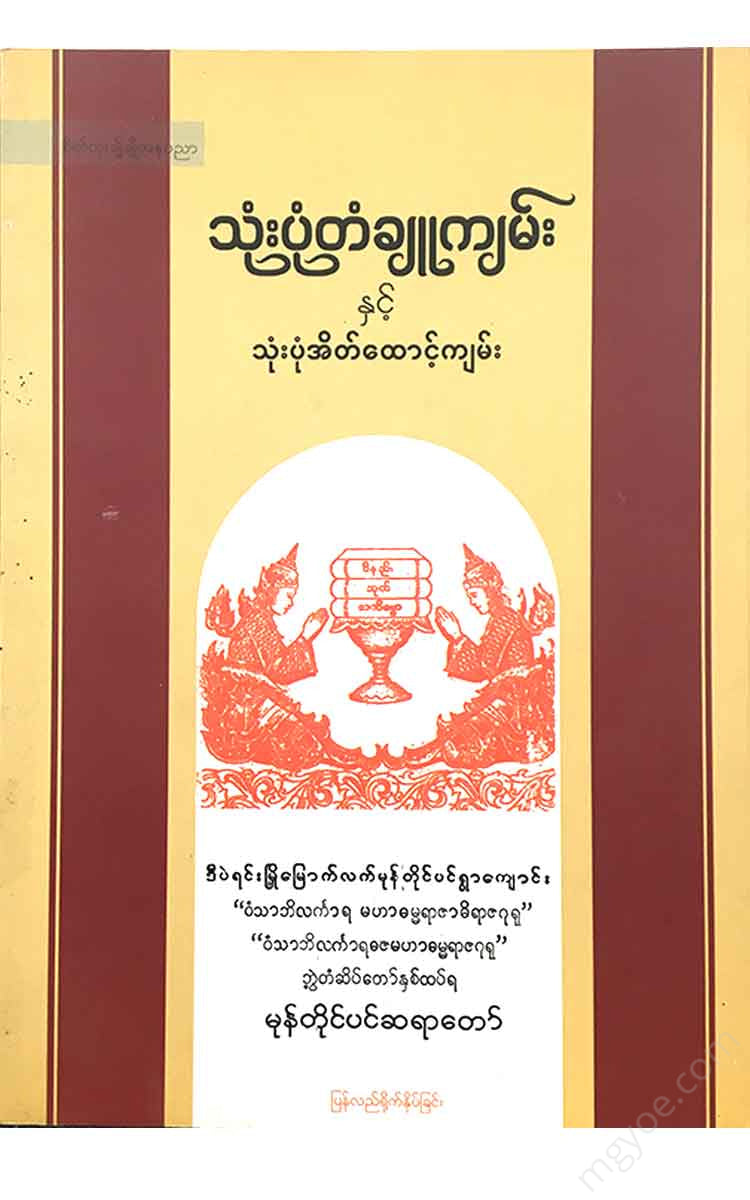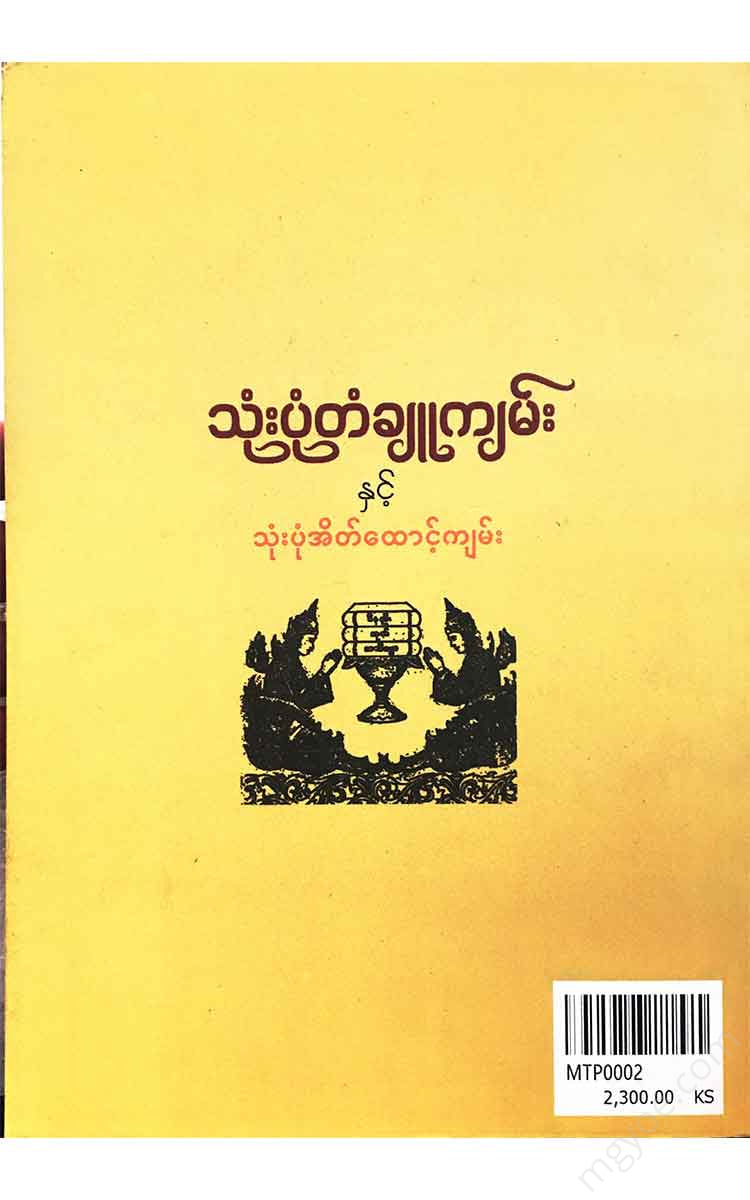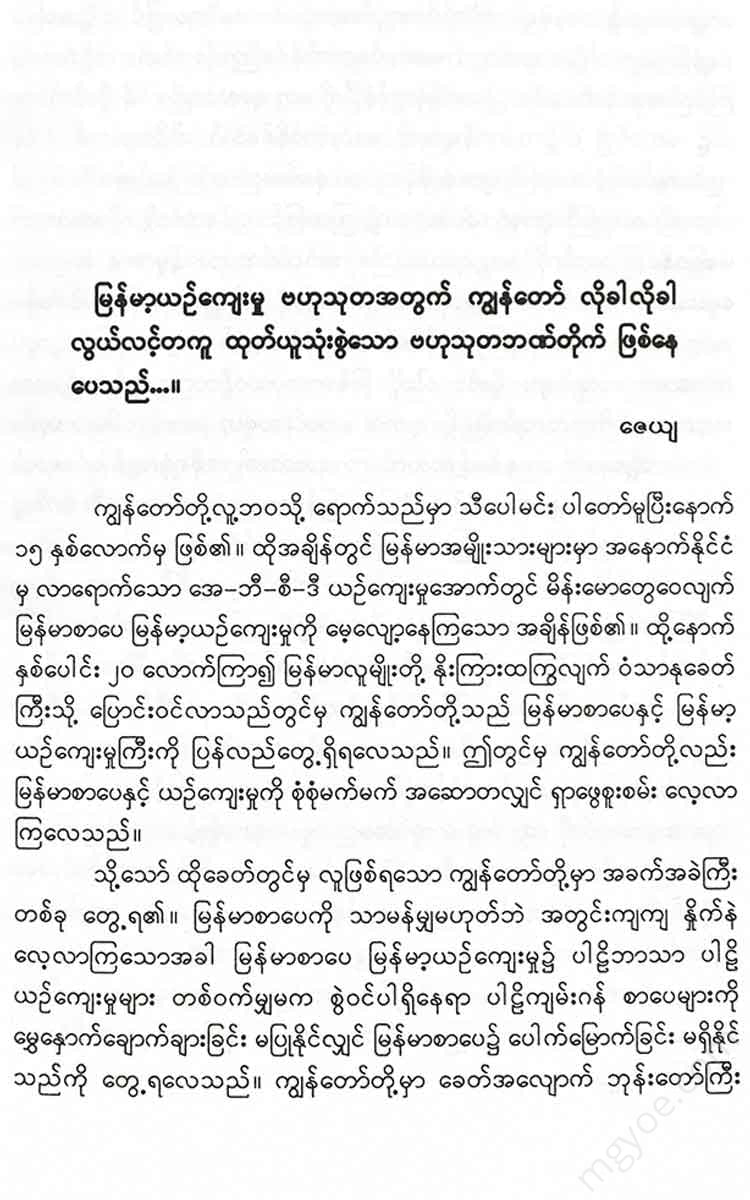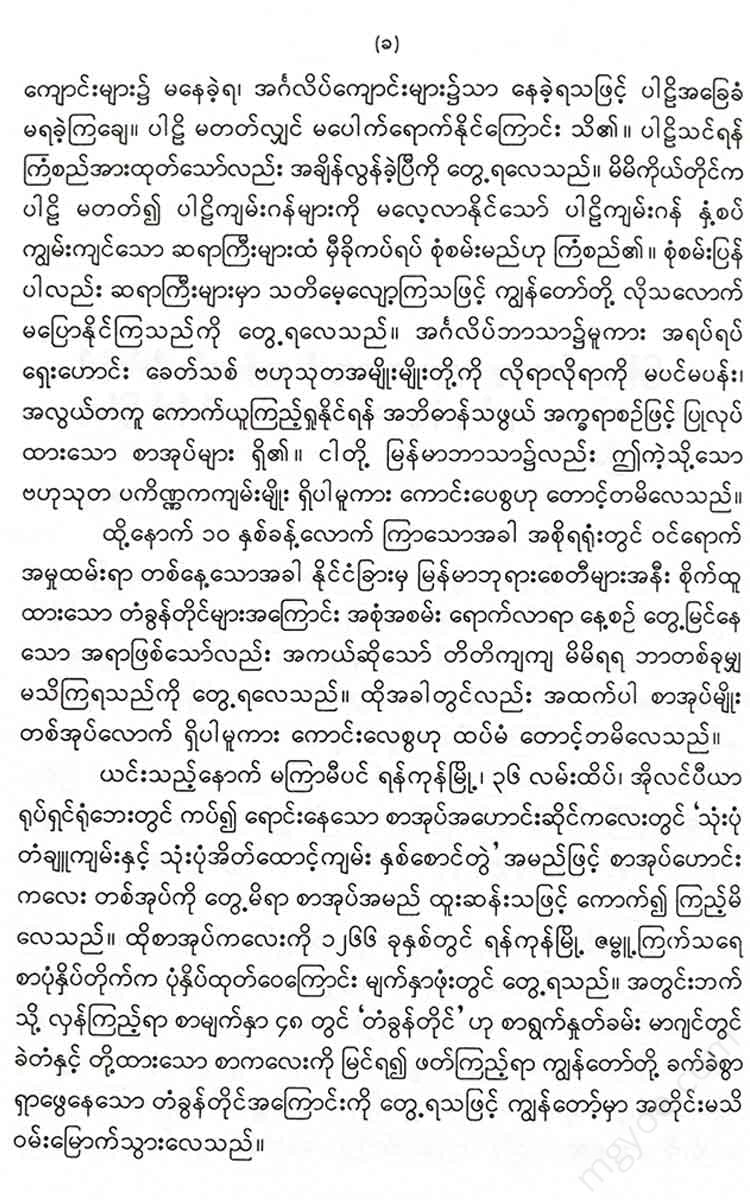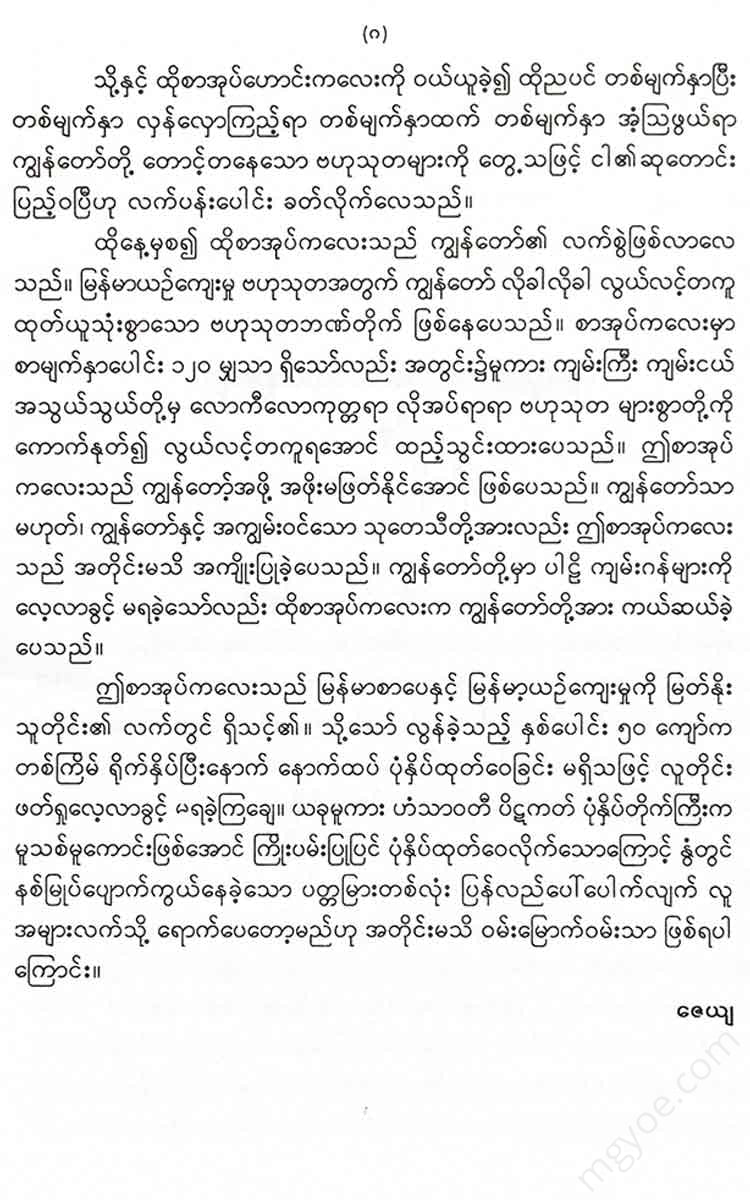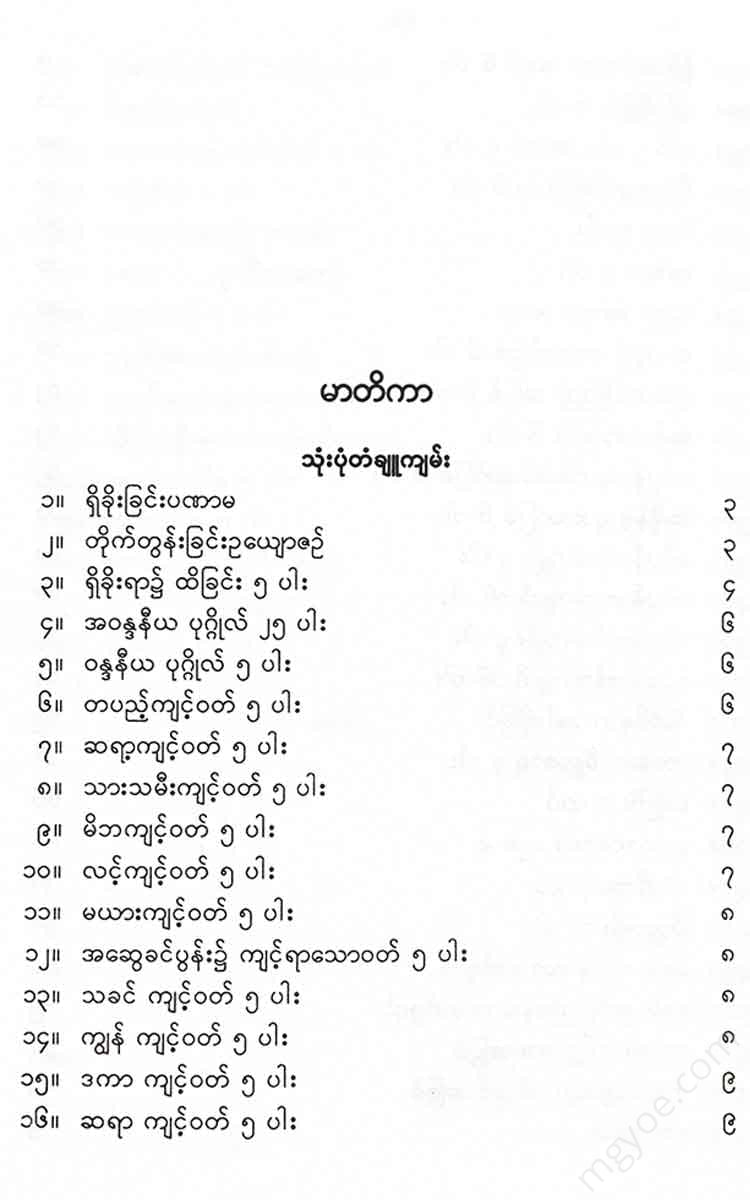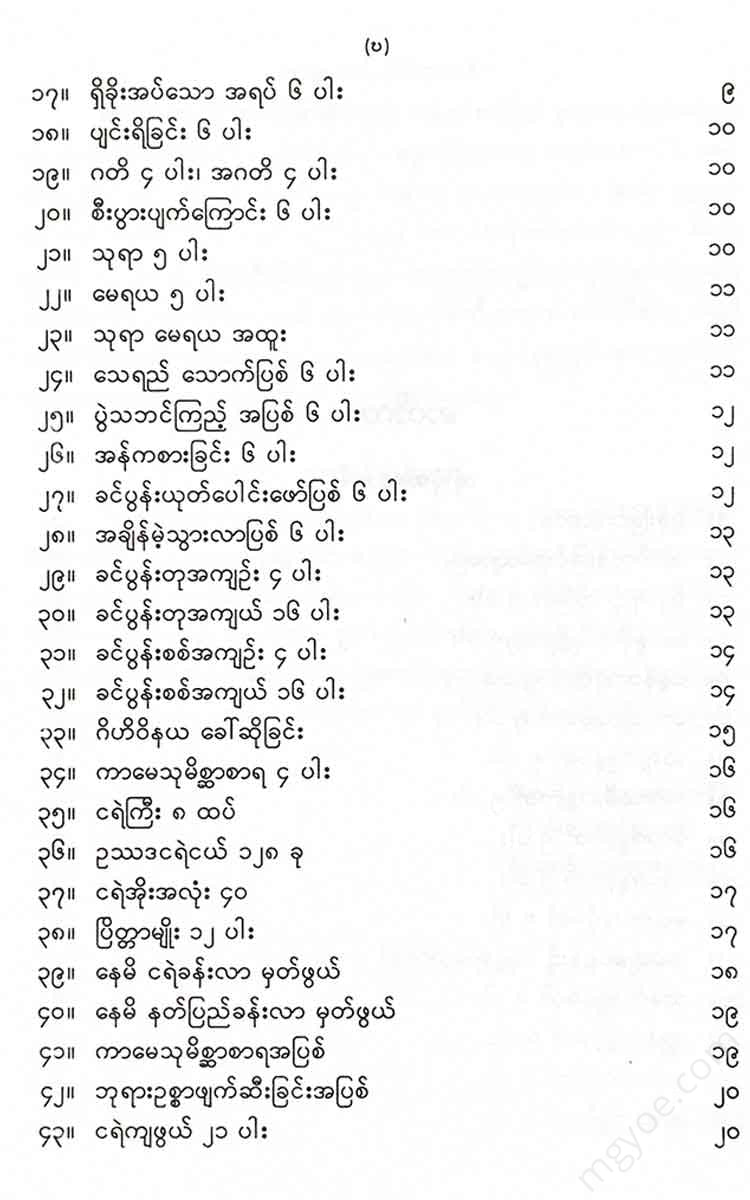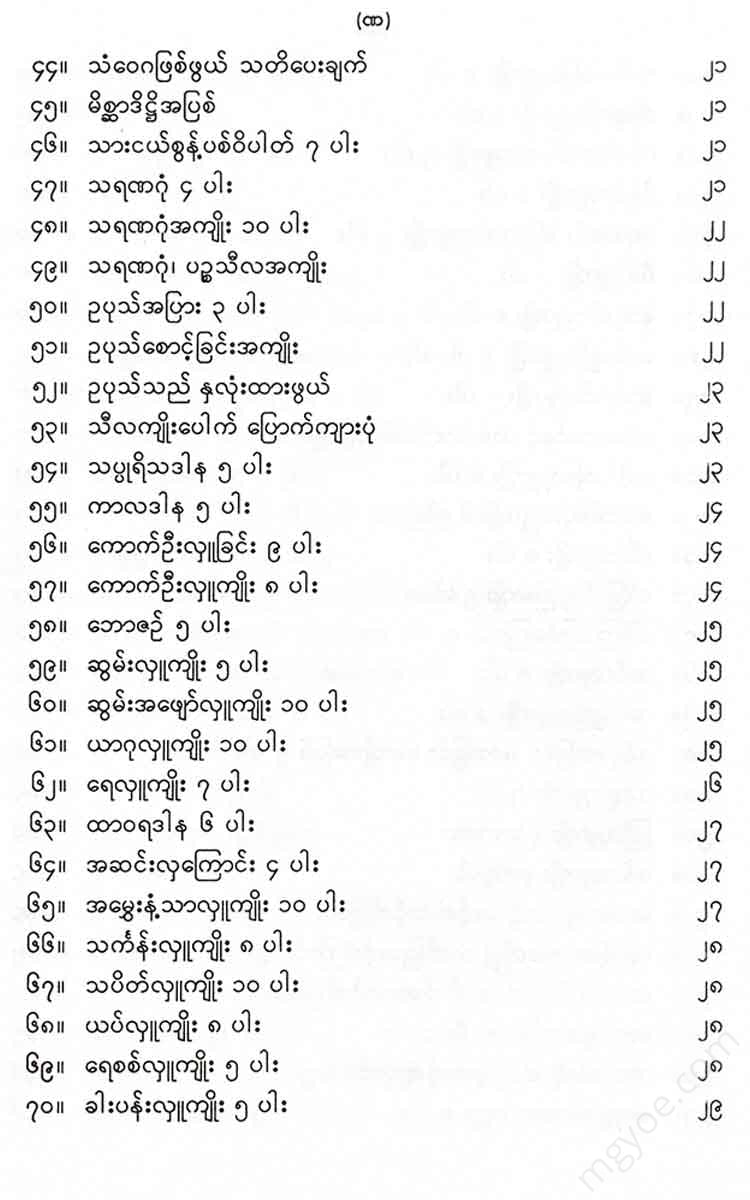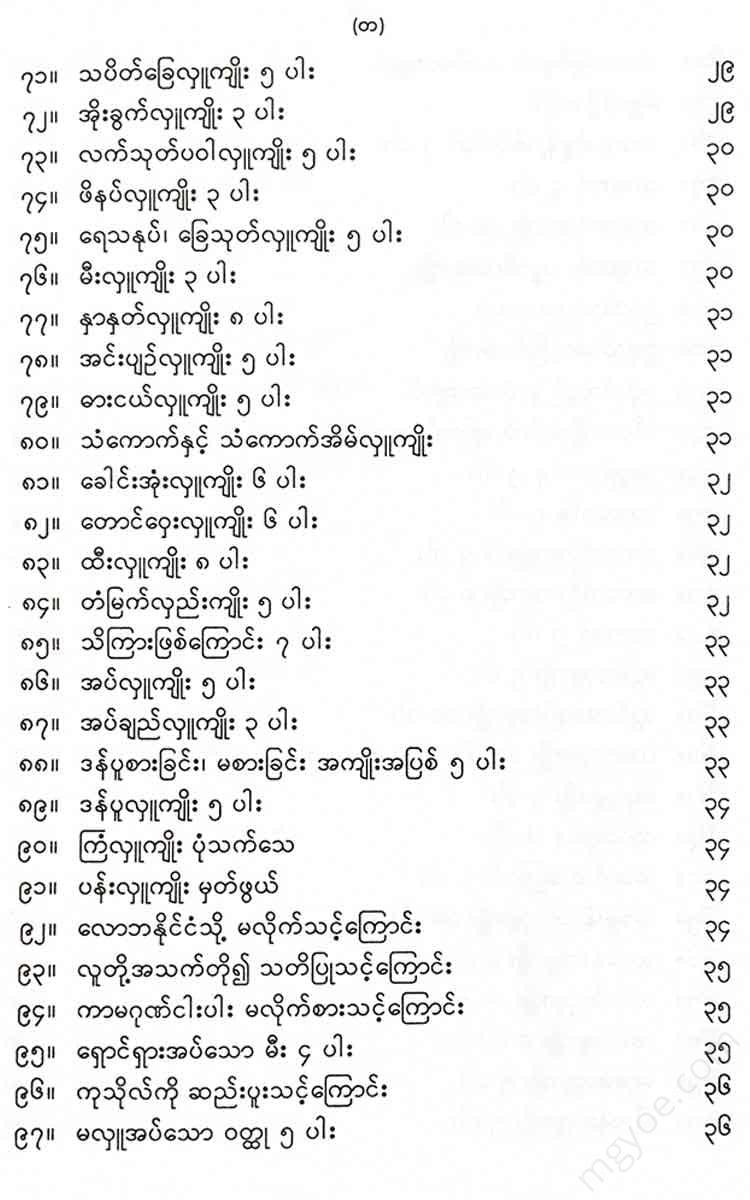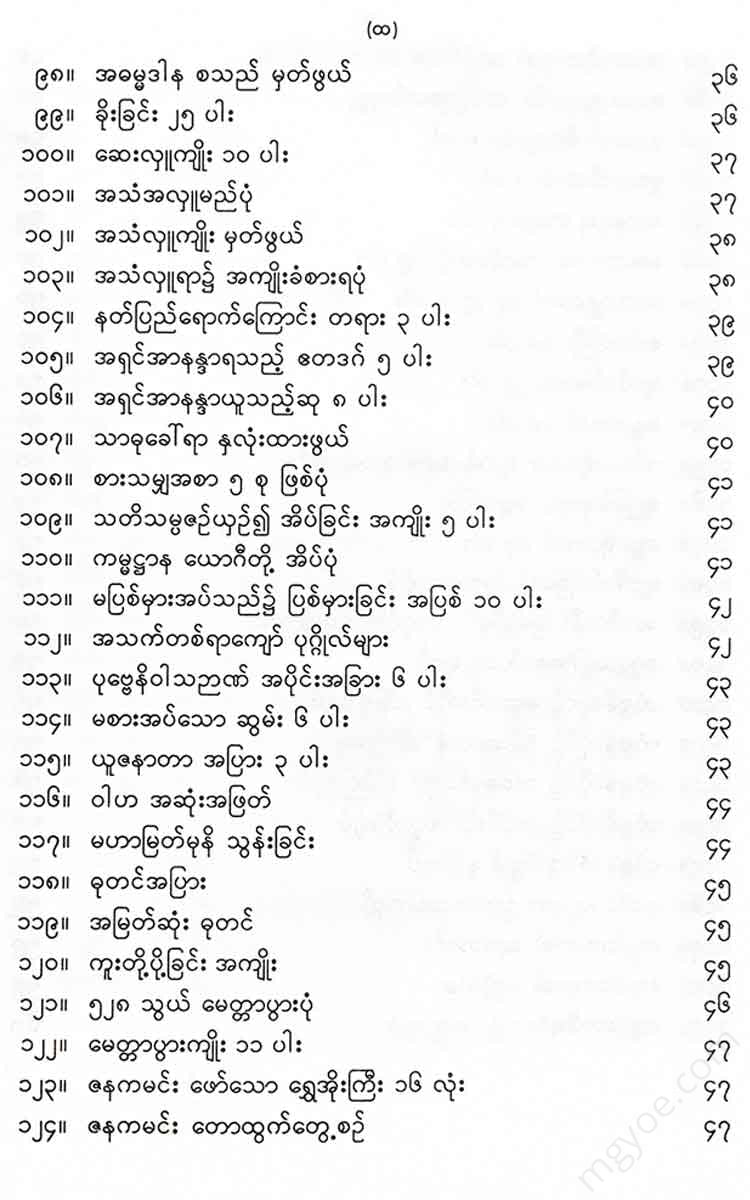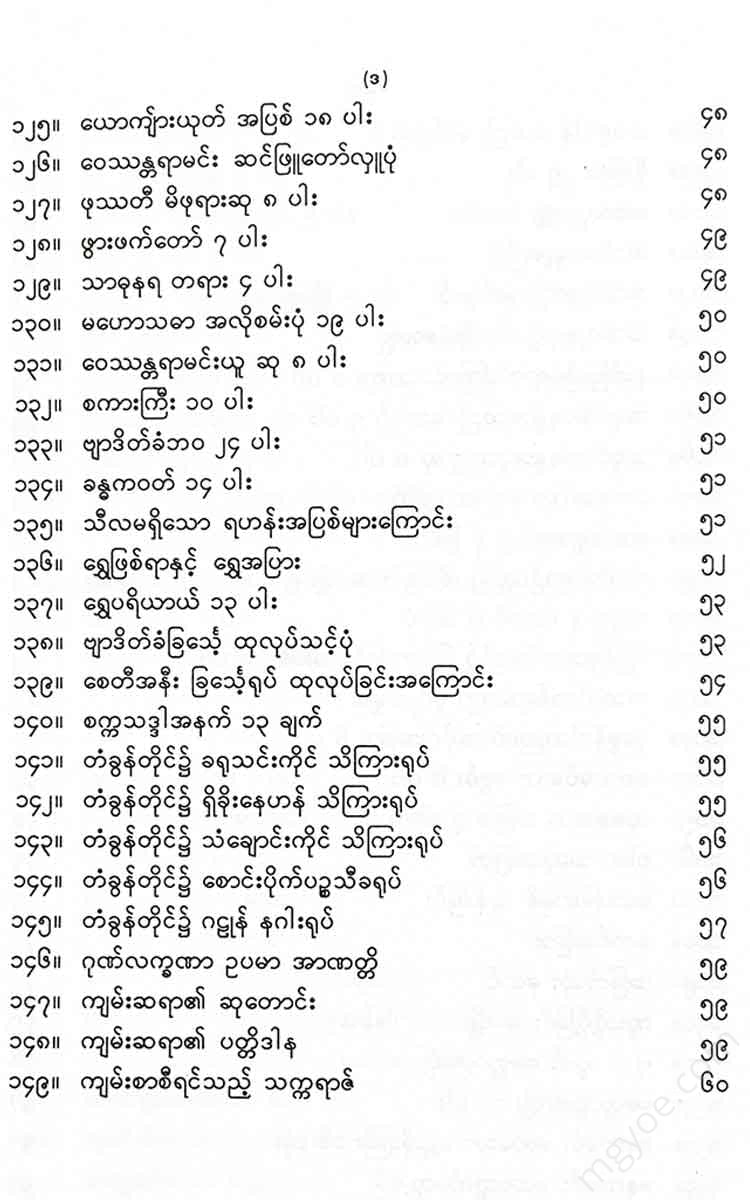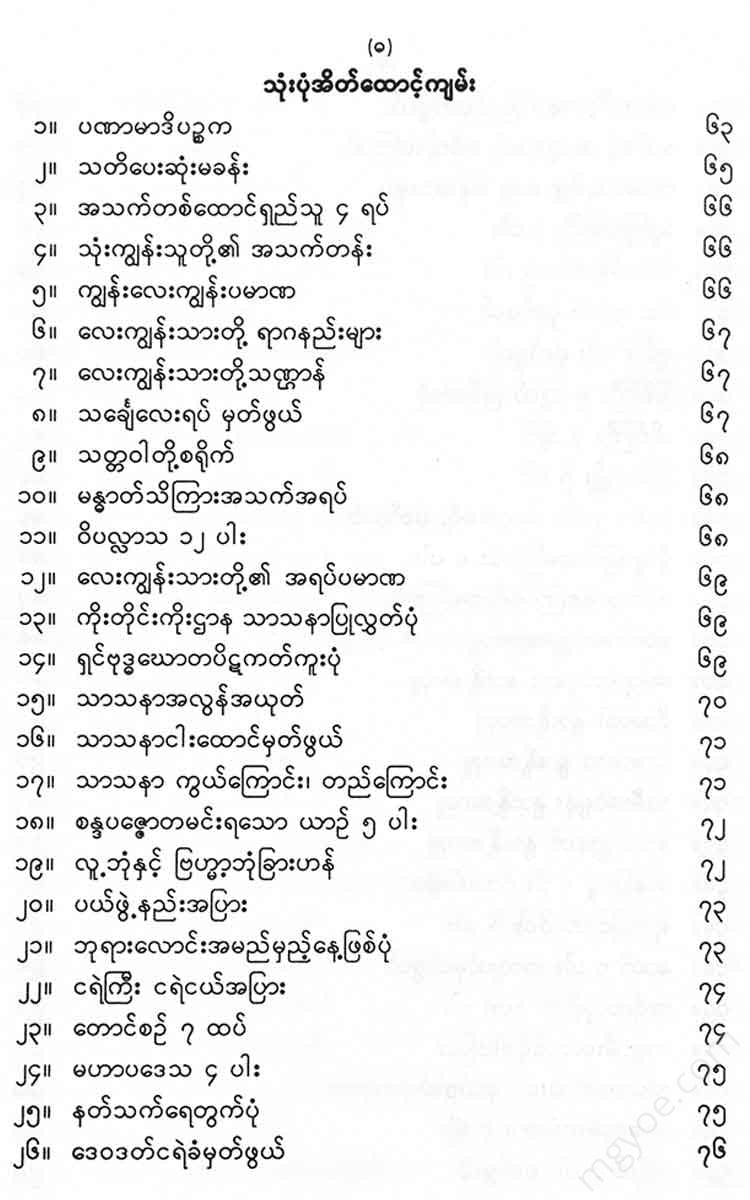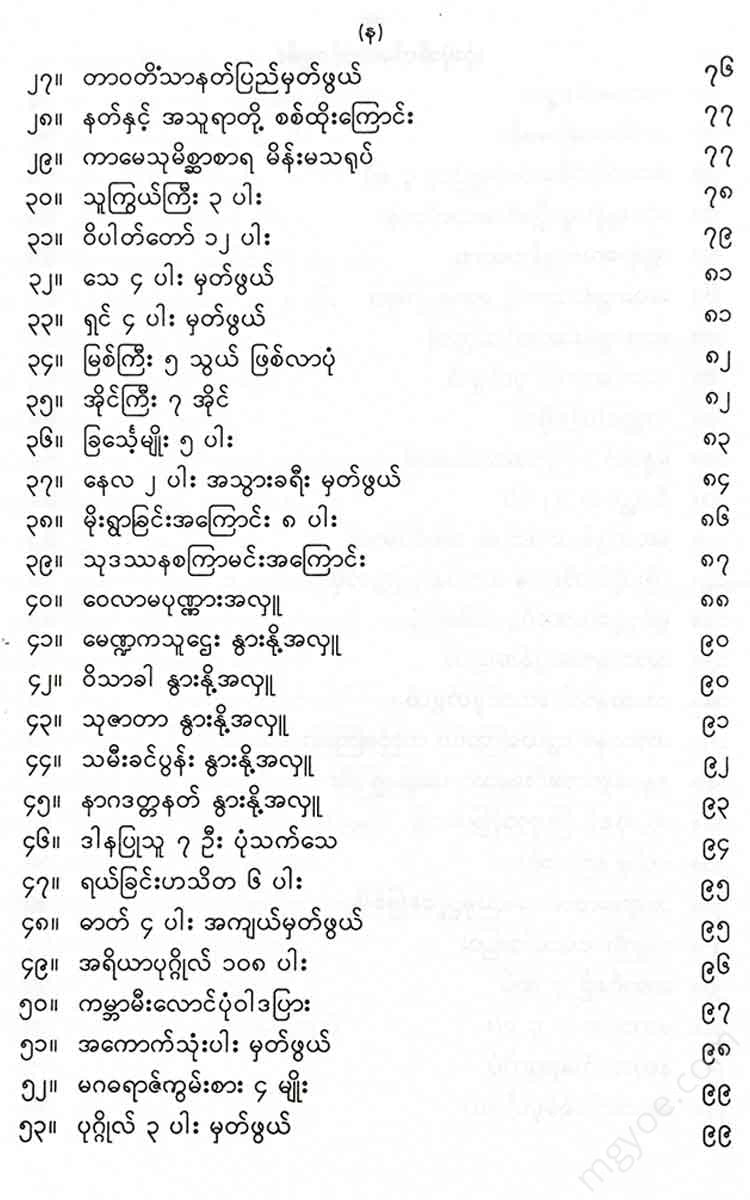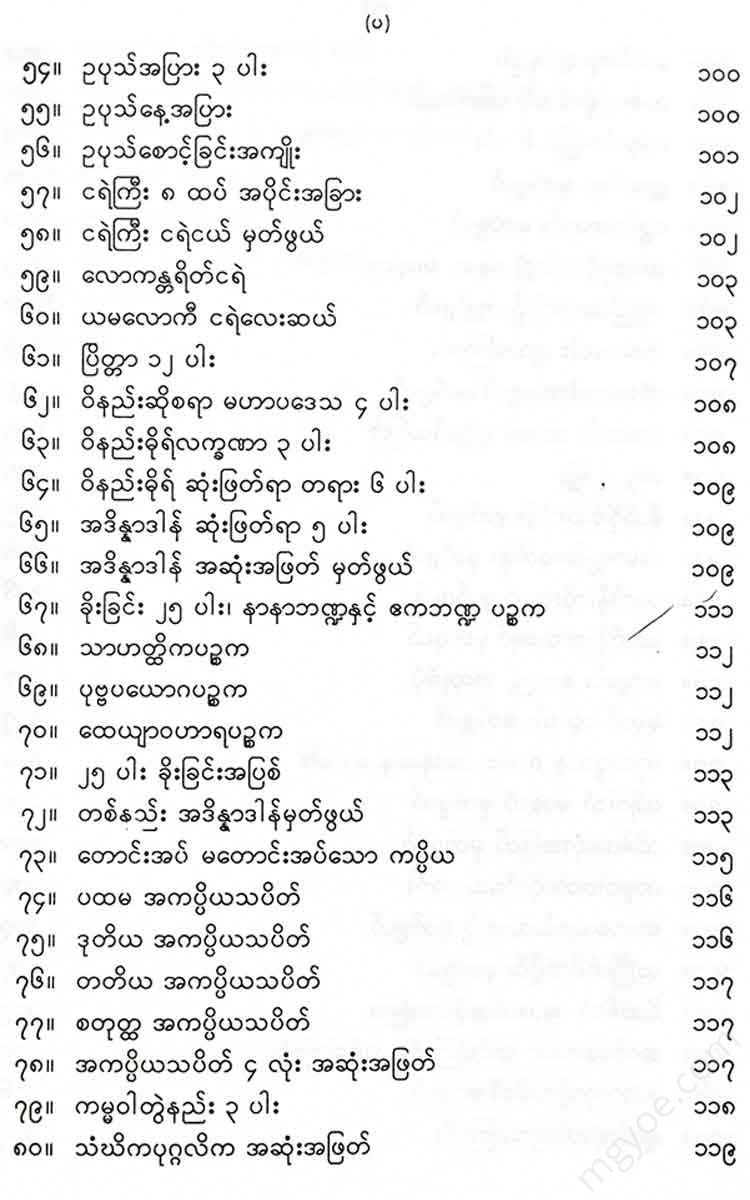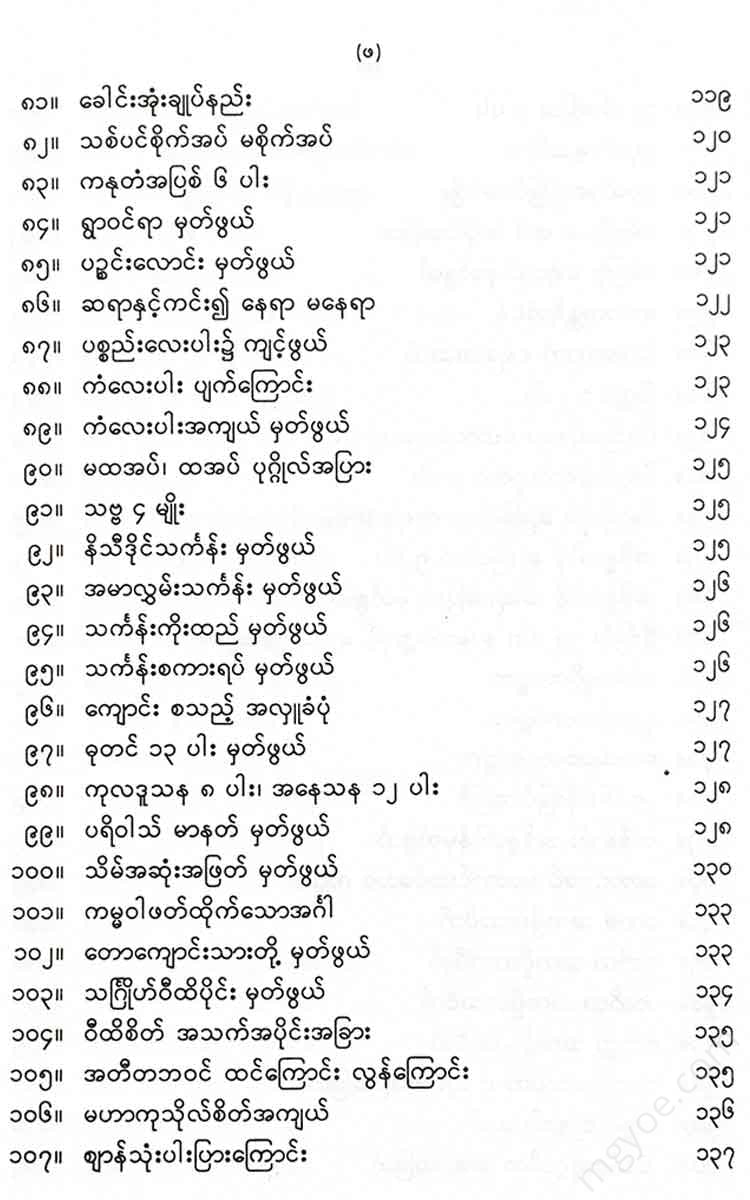စိတ်ကူးချိုချိုစာပေ
Mon monk - Three-pointed star
Mon monk - Three-pointed star
Couldn't load pickup availability
Namo Tassa Bhagavad Gita Arahant Gita Sammasambuddha.
Worship initiation
1. Having paid homage to the Three Jewels, the venerable teacher, with faith flowing, he recited the great scriptures, and explained the difficult words, and showed them how to do them, and he kept them in his heart.
Garden of encouragement
2. Appamada, with diligence, day and night, defective, forgetful, lazy, penetrating wisdom, where is it, the eye of wisdom, not seeing, ignorance, wrong actions, four-fold village, in the three gates of the Vakata, various kinds of things, in the middle of the world, floating wherever it may be, true desire, diligence, day and night, four kinds of letters, not far away, every day, five kinds of questions, four kinds of sacrifices, always, whether it is the three kinds of dhammas, the path is straight, the three kinds of happiness, only to be obtained, the heart makes, the three kinds of body, the path, not leaning, not swaying, not fading
Five acts of worship
3. (a) The five elements, the
( b ) Nayatapara, the scriptures say, standing, bowing, with both feet on the ground, with both hands, together, on the forehead, with the head on the head, with the five-pointed bow, complete. They should not be separated. This is the five-pointed bowing in standing.)
This worship is very important. As important as it is, it is probably rare to find someone who knows how to worship correctly, so I think it is worth expanding on it a little, just for the sake of comment .
(a) The worship of the linga appears in the Vinayalinga commentary written by the monk Taungphila. This commentary is also taken from the Upali Pussā of the Parivarāpalī. However, this worship focuses on the need for respect among monks in worshiping each other. It is not related to people. It is related to the five factors of establishment (the five factors of establishment).
(b) This method of worship (no source found) shows standing worship. Worship is divided into three types: body, speech, and mind (in the Tikanguttarapali). Worship with the body can also be done in any of the four postures (as mentioned in the Athanatiya Preet) of reclining, sitting, standing, and walking. However, only in sitting worship can the five postures be performed. Although it is said to be sitting, it only means prostrating oneself on the ground and worshiping.
"Upasika (la) urena nipatyam namatsamana" is like the Pali (Visuddhimagga).
(c) Sitting and standing, in worship, with both hands fully extended, the knees bent, evenly spaced, should be lowered to the ground, twenty-one cubits, with both hands, stretched out, and placed flat on the ground, one limb, the palms of the hands, above which, the head, the head, should be placed, well respected, worshiping, four kinds of offerings, free from fear, and the mind of faith should be clear. These are the five expressions of touching in worship while sitting.)
(c) This method of worship is the opinion of the Patisambida Gandhi. In the Lanka, it is said to be the head, but the forehead is taken. In the Patisambida Gissa, it is said: “Panspatithitthitaṇāti dhijāna, dhihatṭha , nalāvgāhi panspatithitthitaṇā katva” (both hands, both feet, forehead). In the Thilakkhan Tika, it is said: “Pāda, jānu, kappaṇa, hatha, sihāsaṅkhatāni pansamāṅgāni samāṇākatva ōnametta abhidhugoḥ litena pathamān vandiṃti vuttam hoti” (feet, feet, hands, forehead). It is not certain.
It is better not to explain it in detail. In short, it is better to say that the five (objects) are the five (objects) rather than the five (objects). In what does it stand?
It is said that the five limbs, the feet, the hands , and the head, must be placed on the ground. Therefore, in the Terasakan Commentary (Bhikkhunis' Discourse), it is said, "The five limbs are placed on the ground." In the "Silakkaddha-e-tthakatha" (chapter on the Ajata-sat), it is also said, "Bhumiyam pansapattithitena vandyam pakkami." This can also be called (touching). However, the word (touching) can be mistaken for the touching of the limbs. Therefore, it is better to say (standing on the ground). These five standings can also be attained (as has been shown) only by prostrating oneself on the ground. It means that whoever prostrates himself on the ground and bows down should be able to (stand) on the ground and worship the five limbs, namely, his feet (knees) , his hands (elbows), and his head.
According to this (c)-marked lingka, the five-fold position is still not possible. (Based on the lingka's statement that the head must be placed on the two palms.)
While it is true that we should not reject the doctrines of this book in our commentary, we feel that everyone needs to know the true decisions of ancient sages such as the great U Than Mo, and so we have added this lengthy commentary. Let us consider with wisdom and follow only what is right.
25 people of Avandaniya
4 (a) Anupasampanna, Ukkhitta, and the mean woman, the five-fold guru, the two-fold narcissist, the one-fold nagga, the twelve-fold . . Avoid, O king, far away. . These are the twelve different and unworthy persons who are worthy of veneration. The worshipper should not forget the sins, and should take the two-fold narcissist as one.
(b) Entering a village, traveling, fighting in the dark, sleeping, yagupana, battagga, leaving a small intestine, one way, one big intestine, one enemy, not a heart, thirteen. . Completely free from the wind. These are the twenty-five words of Avandaniyya.
[He said five things,
5 venerable persons
5. Upasampakam, the first to be received, the non-dharma, the doctrine, and the other, the two teachers, the Tathagata, the Sambuddha. . The eternally unbroken Shivavatsin. These are the five statements of the venerable Vandaniyya person worthy of veneration.
5 Discipline Codes
6. Greeting the traveler, being respectful, listening attentively, serving clearly, and eating respectfully. With these five, great favor, special honor, the teacher is bought, the path is straight, the path is clear, and the disciple is devoted to the Dhamma. These are the five duties that the disciple should practice towards the teacher. (This is a memorable statement of the five duties that the disciple should practice towards the teacher.)
5 Teacher Ethics
7. In the case of a disciple, the teacher should teach well, teach well, speak well, preach well, and prevent evil. These five things are not wrong for a teacher to do. These are the five moral principles that a teacher should practice in his disciples. (It is worth remembering the five moral principles that a teacher should practice in his disciples.)
Among these five, the prevention of harm means that wherever one goes, one is free from all dangers because of the teacher's knowledge. The teacher follows and protects one. Whatever benefits one gains from the knowledge taught by the teacher, whether it reaches the Brahma realm or not, the teacher gives it to him.
5 moral principles for children
8. A son should do what is right in the eyes of his parents, in order to be a good father, in order to establish a family, in order to inherit, in order to be able to receive, in order to give, in order to be able to give. These are the five duties that a son should perform towards his parents.
5 parental ethics
9. Parents should teach their children to do good deeds, to avoid evil and to do good, to be good to others, to marry someone who is worthy of marriage, to give them inheritance, and to give them property in a proper manner. These are the five moral values of parents. These are the five moral values that parents should teach their children. (This is a brief explanation of the five moral values that parents should teach their children.)
5 moral principles
10. A husband should be kind to his wife: to love her, to be kind to her, to be generous, to be kind to her
5 rules of wifely conduct
11. The conduct of a wife towards her husband is: upright conduct, good conduct towards her husband, special devotion to her husband, non-violent conduct, stewardship of property, and non-lazy conduct. These five are the three qualities of the Buddha. These are the five duties that a wife should observe towards her husband.
5 etiquettes to follow in a friend's life
12. (a) To a friend, conduct yourself, speak kindly, give in kind, be of the same mind, be honest, and be of good character. These five are considered in the scriptures to be the conduct of a noble person. These are the five duties that one should practice towards a friend. In other words, they are fivefold. The conduct is: asking and caring for, not losing property, keeping it, when afraid, worshipping, in great distress, not escaping, not losing, not giving away, and not preserving one's lineage. These fifty are the four kinds of conduct that one should not practice. These are the five duties that one should practice towards a friend.
The 5 moral principles
13. The master should give his servant a set of rules, a moderate amount of food, food for his sick, food for his family, and food for his family when needed. He should also give him alms when needed. He should also make him behave in accordance with the five principles of conduct and the scriptures. These are the five duties that a master should perform for his servant. (This is a memorable statement of the five duties that a master should perform for his servant.)
5 rules of servant ethics
14. A servant to his master, to instruct him to do good, to rise early, to sleep late, to take what he gives, to do it sincerely, to show gratitude, to be kind and considerate, to be mindful, these are the five duties that a servant should perform towards his master. These are the five duties that a servant should perform towards his master, and they are worth remembering.
5 rules of conduct for a preacher
15. Monks, the proper conduct and conduct are: loving-kindness, not clinging to the dualities,
Offering alms, pure and pure love, these five things, without fail, are born every day. This is the five vows that monks should perform, the words of the monk are worth remembering. Of the three kinds of loving-kindness, the three present, and the six kinds of loving-kindness, the three unseen. You can learn more about them by looking at the Suttasingha, Suttapatheya, and Pariva, the Pali texts of the Atthakatha.)
Teacher ethics-5
16. The teacher, the disciple, should be a good teacher,
6 places of worship
17. Mata Pisu, Pupva Disa, Saya Myatla, Dakshina Tung, Puttadara, Disa Pitsa, Mitta Uttara, Hodasa, Samana Brahmana, Saha Tung, Sixfold Place, Place of Worship, Teacher of Humans and Devas, Satta Deva, He who has been instructed, He who has never erred in his conduct. These are the six Dhammas that Singhala, when his father was about to die, taught his son to worship the six directions without ceasing, and after his father died, he worshipped the six directions in the natural direction, and so he preached the six directions.)
